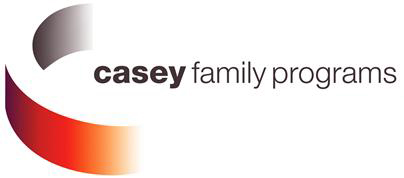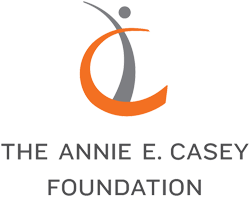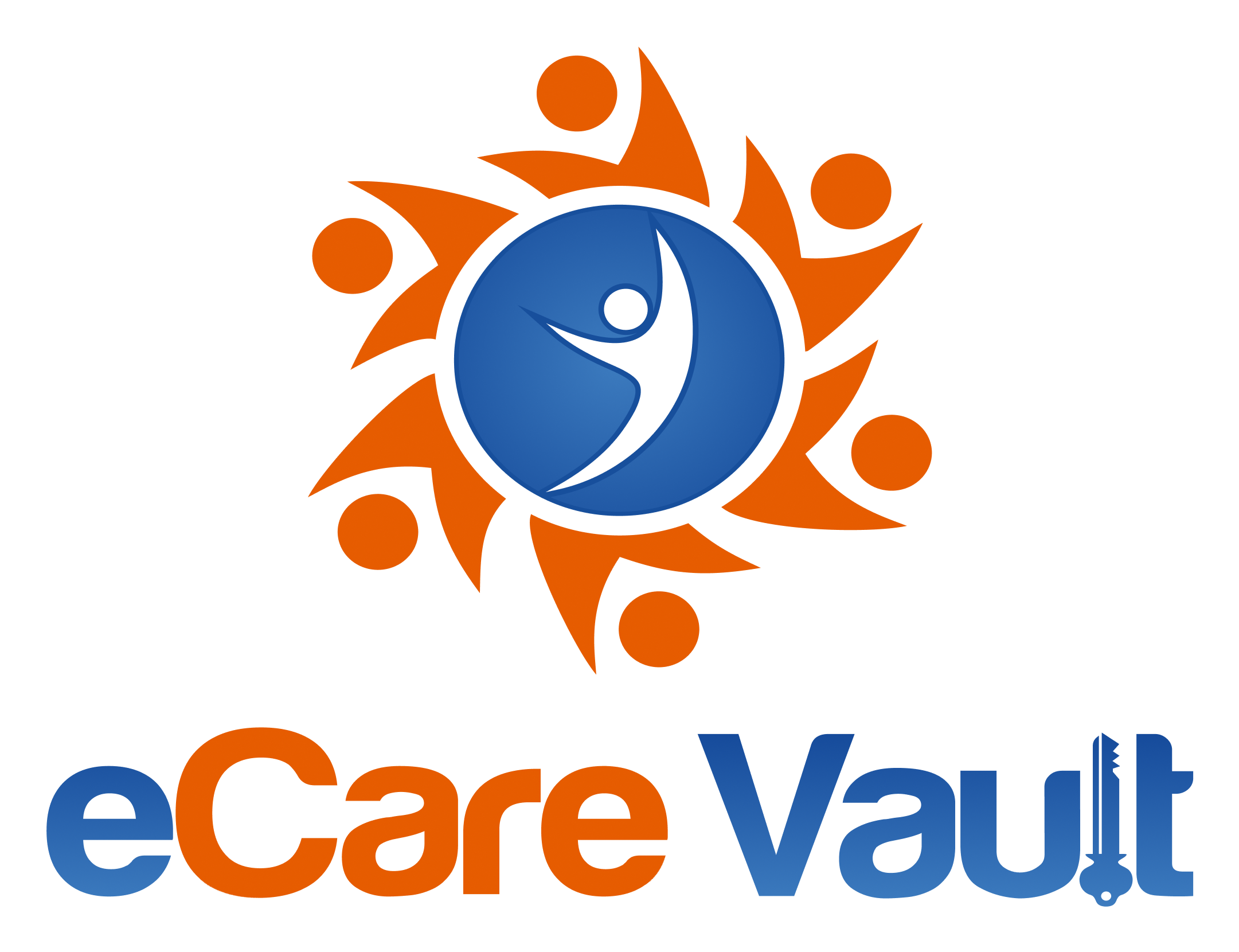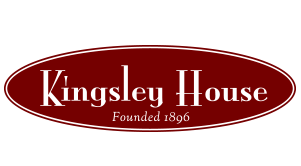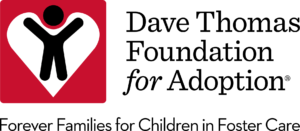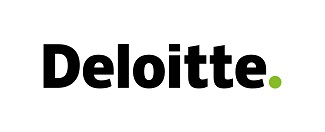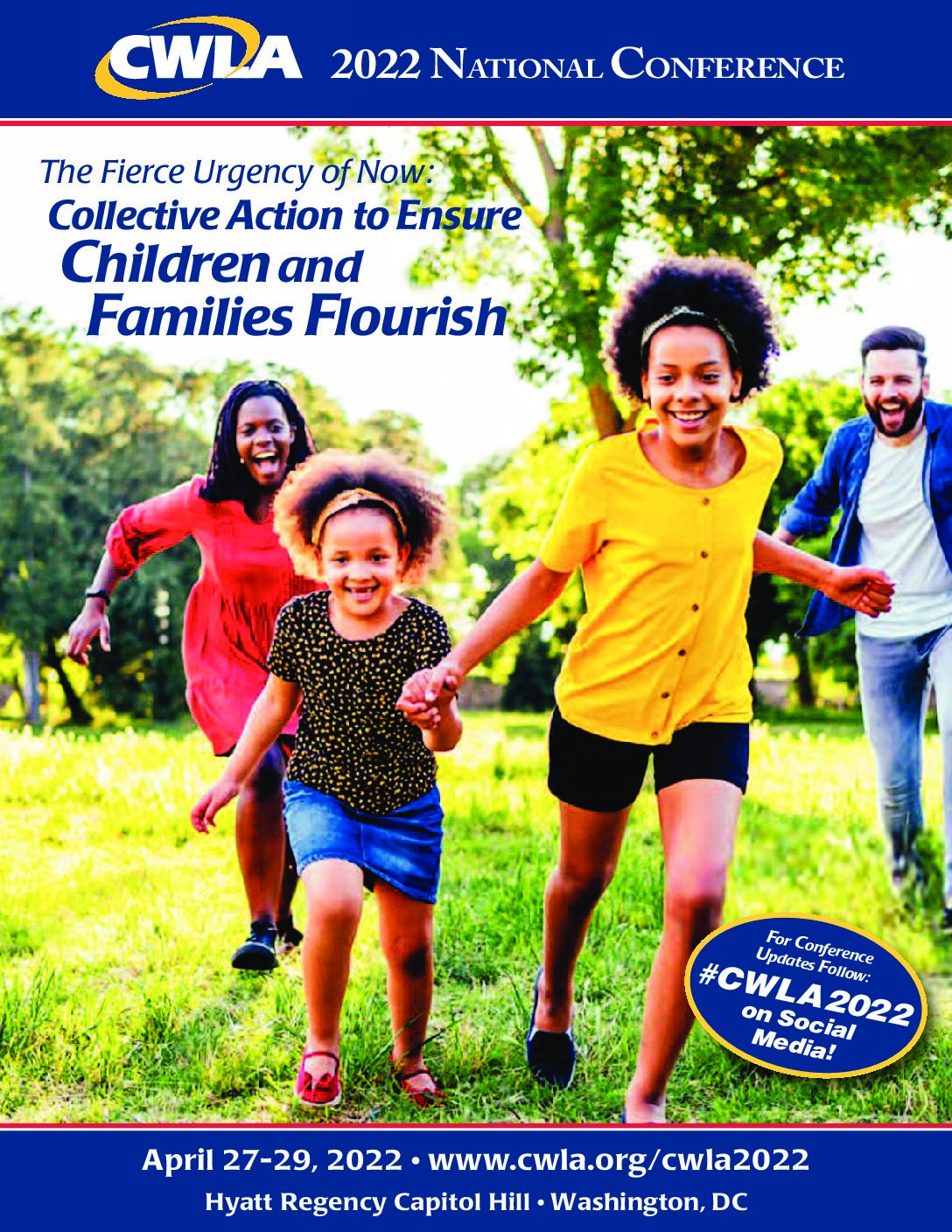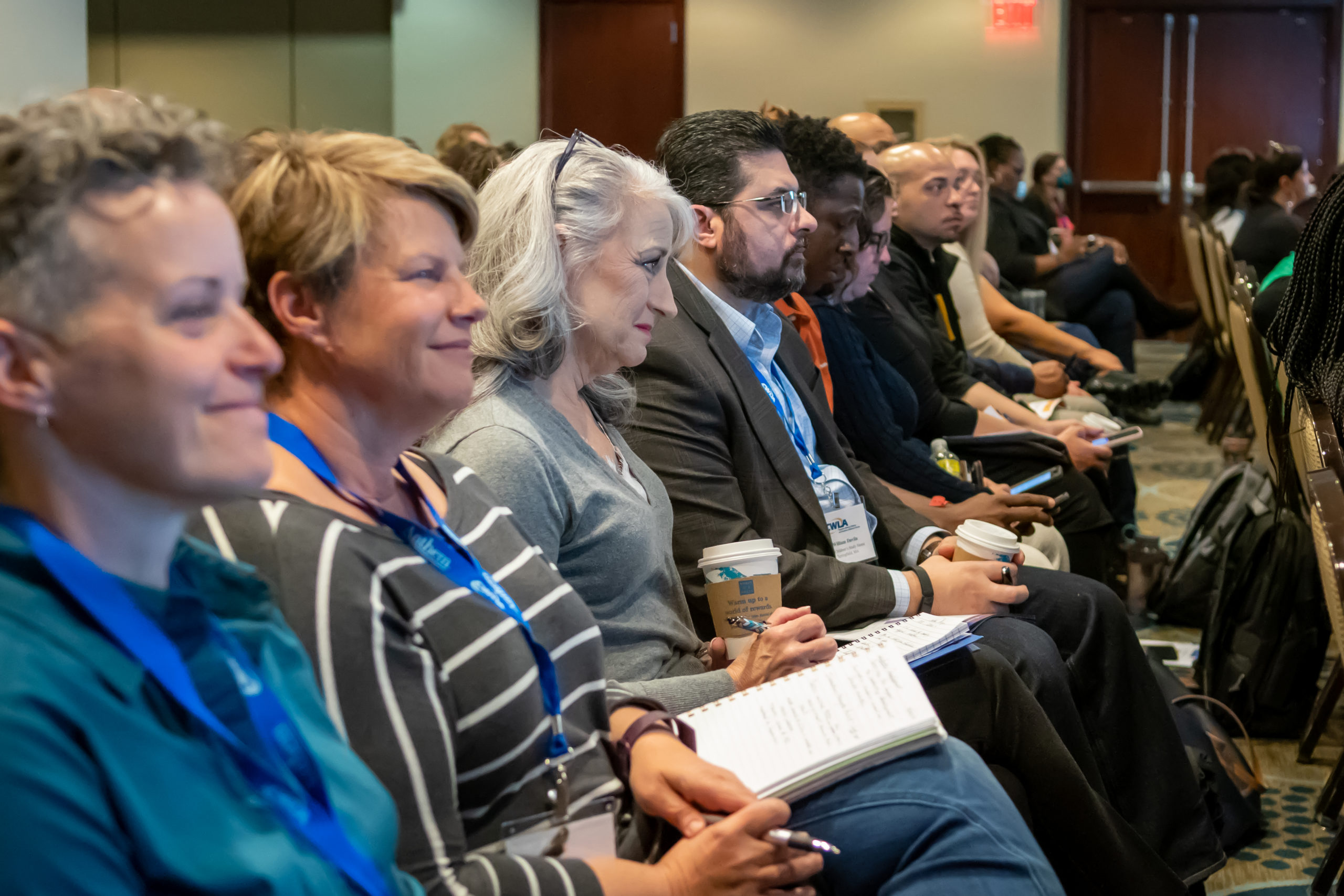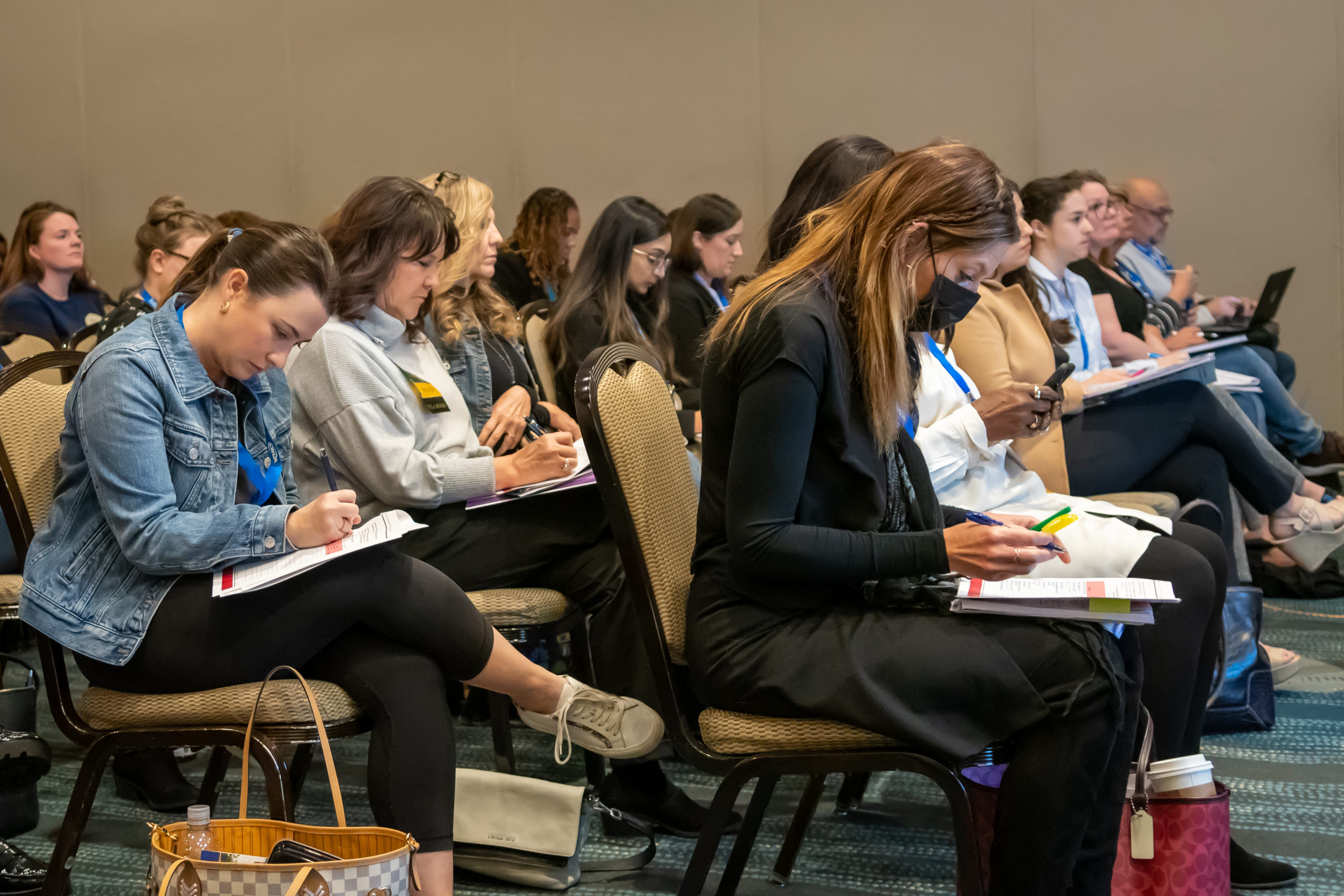CWLA 2022 NATIONAL CONFERENCE:
The Fierce Urgency of Now:
Collective Action to Ensure Children and Families Flourish
Hyatt Regency Capitol Hill, Washington, DC
April 27-29, 2022
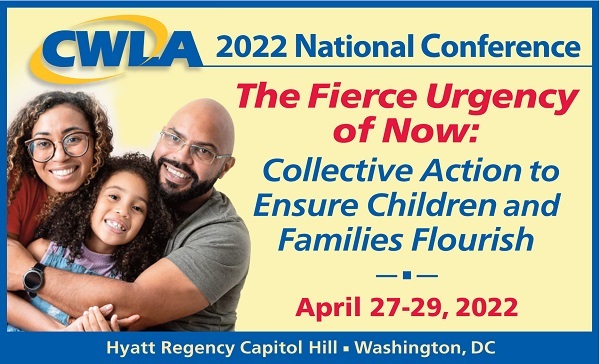
Overview
The CWLA 2022 National Conference, The Fierce Urgency of Now: Collective Action to Ensure Children and Families Flourish, was held April 27-29 at the Hyatt Regency Capitol Hill in Washington, DC. Attendance and energy for our first conference in three years was high, as hundreds of professionals came together to address the fierce sense of urgency and demand for institutions to make bold changes to better serve all children and families, especially those who are Black, Brown, and Indigenous. As professionals and volunteers working in a high-stakes field, we have learned from the events of this past year that we can and must do business differently. We need to find bold ways to make the type of changes required to reach the vision of CWLA’s National Blueprint for Excellence in Child Welfare (National Blueprint) “that all children will grow up safely, in families who are loving, with everything they need to flourish – and with connections to their culture, ethnicity, race, and language.”
But child welfare cannot do this alone. We need to collectively work hand-in-hand with families, communities, and other systems, as well as federal, state, and local leadership, to eliminate the many barriers to achieving our vision. The 2022 CWLA conference was an opportunity to use our 4 A’s approach for transformation: awareness, acknowledgment, action, and accountability. We welcomed back our friends, colleagues, and partners – old and new – and connected, reconnected, recharged, and made decisions about how we collectively and as individuals, agencies, the child welfare system, and society as a whole can and must take action to achieve a better world for all children and families.
Using the 4 A’s framework for transformation and the National Blueprint, this conference created awareness; helped attendees acknowledge where we have not gotten it right; highlighted successful strategies, research, practices, advocacy, and actions that individuals, families, organizations, and communities are using to improve supports and services; and identified actions that we can collectively take as part of our accountability to address today’s critical child welfare issues.
For the first time since 2019, CWLA utilized our connections with and access to Congress, the Administration, and other national coalitions and organizations to provide attendees with opportunities to dialogue with these important stakeholders. Our traditional Advocacy Day activities looked a little different due to certain restrictions on Capitol Hill, but we were still able to incorporate opportunities for attendees’ voices to be heard on the critical issues of Child Tax Credit (CTC) extension, implementation of child care expansion, and other significant topics.
We held a fast-paced conference that featured plenary sessions, a panel presentation, and 60-minute Action Labs, which drew on the experiences of your public and private peers in child welfare and related service areas; our research, advocacy, and education partners; and representatives from families and communities. The sessions presented evidence-informed/evidence-based programs and practices, research, and projects focused on topics related to implementation of the Family First Prevention Services Act, cross-system collaboration, youth engagement, kinship navigation, advancing equity, prevention and intervention, workforce supports, managing organizational change, community partnerships, and much more. Having been apart for so long, we all relished the ample opportunities for networking and reconnecting with friends and colleagues from across the country.
Attendees were also given an opportunity to provide input into what CWLA includes as we update the current Standards of Excellence for Child Protective Services and create a new Standards of Excellence for Community-Based Prevention Services. We received some fantastic insights from conference attendees that will be used to shape our final product!
As always, the conference was ultimately an opportunity for all of us to recommit to our collective work and advocacy to advance quality services and a continuum of care, create communities of support, and take action to ensure that all children and families flourish. We greatly enjoyed seeing you in Washington, DC, and are looking forward to next year!
Contact us at CWLA2022@cwla.org for assistance.
Conference Program & Photos
Conference Schedule
Tuesday, April 26, 2022
8:00 am – 5: 00 pm
AAICAMA Member Sessions (Invitation only)
Wednesday, April 27, 2022
9:00 am – 11:30 am
CWLA Standards of Excellence Input Session
12:00 pm – 1:30 pm
Opening Plenary & Lunch
1:45 pm – 2:45 pm
Action Labs
3:00 pm – 4:00 pm
Action Labs
4:15 pm – 5:15 pm
Action Labs
5:30 pm
Exhibit Hall & Reception
Thursday, April 28, 2022
9:00 am – 10:30 am
Plenary Session
10:45 am – 12:00 pm
Panel Session
12:00 pm – 4:00 pm
Advocacy Day Activities
12:00 pm – 1:00 pm
Exhibit Hall & Lunch
Thursday, April 28, 2022 (cont.)
1:15 pm – 2:15 pm
Action Labs
2:30 pm – 3:30 pm
Action Labs
3:45 pm – 4:45 pm
Action Labs
5:00 pm
Reception & Exhibit Hall
Friday, April 29, 2022
8:30 am – 9:30 am
Action Labs
9:45 am – 10:45 am
Action Labs
11:00 am – 12:00 pm
Action Labs
12:15 pm – 1:45 pm
Closing Plenary & Lunch
2:00 pm – 6:00 pm
Training Institute
Saturday, April 30, 2022
8:30 am – 12:30 pm
Training Institute
Advocacy
THANK YOU FOR JOINING US FOR ADVOCACY DAY 2022!
Thursday, April 28
CWLA was pleased to offer attendees opportunities and resources for connecting with their members of Congress, the Administration, and other national coalitions and organizations at our 2022 National Conference. We know the vital role these dialogues play in your efforts to speak for the children and families you serve. CWLA’s signature Advocacy Day looked a little different this year, due to certain restrictions on Capitol Hill, but we were still able to ensure this year’s program allowed for your voice to be heard on the critical issues of extending the Child Tax Credit (CTC), child welfare improvements, implementing child care expansion, and other pressing concerns.
CWLA’s 2022 Conference also featured an advocacy panel plenary, several legislative-focused action labs, and an afternoon of Advocacy Day activities. As we gathered together again for the first time in three years, steps from Capitol Hill, our focus was advocating for policy and legislation that reflects the needs of the children and families we serve.
Spotlight Track
CWLA and Chapin Hall at the University of Chicago were pleased to partner on a Spotlight Track entitled:
Re-Imagining a Prevention-Focused and Equitable Child Welfare System for the 21st Century
Child welfare leaders face a critical call to action to address longstanding system failures and inequities and engage in the policy context beyond child welfare specific legislation. We invest billions of dollars annually in interventions that separate families, underinvest in prevention, and prioritize interventions designed to address family deficits rather than the family circumstances that place children at significant risk of maltreatment. Families, youth, communities, advocates, and professionals across systems are coming together to call for an integrated and equitable child- and family-serving system that addresses the root causes of family instability and child welfare system involvement.
Action Lab Sessions
Wednesday, April 27
Action Lab Sessions A
1:45 pm – 2:45 pm
A1 – Child Maltreatment Re-reporting, Recurrence, and Foster Care Re-entry: Identifying Risk and Protective Factors for Practice and Policy Change
University researchers and child protection leaders from a large Midwest metropolitan county established a research partnership to identify key factors related to maltreatment re-reporting, recurrence, and foster care re-entry, considering these factors in the context of significant policy and practice reforms occurring during the study period. Results of the research revealed three broad areas for practice and policy improvement: administration, child welfare implementation and coordination, and use of Structured Decision Making (SDM) tools. Presenters will discuss specific intervention opportunities for improving policy and practice within the child protection system.
Presenters: Kristine Piescher and Faith VanMeter, Center for Advanced Studies in Child Welfare, University of MN, St. Paul, MN
A2 – The Future of Parent Support Groups and How Agencies Can Help Them Thrive
This presentation will cover best practices for agencies to engage families in addressing complex trauma and building resilience in their children. The speaker will include lessons learned about best practices in running high-quality parent support groups, discuss how to create community in both online and in-person groups, and provide innovative resources and techniques for agencies to use. This presentation is based on four years of research into parent support groups for parents raising children exposed to trauma; extensive interviews with agency administrators, group facilitators, and parents; and two years of data from over 30 groups.
Presenter: Dawn Davenport, Creating a Family, Brevard, NC
A3 – Supporting Healthy Relationships and Healthy Families: A Whole Family Approach in Southern New Jersey
The Pascale Sykes Foundation, in partnership with The Senator Walter Rand Institute for Public Affairs at Rutgers University-Camden (WRI) and Family Strengthening Network, will present evaluative findings from a study on the Whole Family Approach. The presentation will describe the Whole Family Approach, highlight study results, and include a family who has benefited from the approach. The presentation will show that families who identify a second adult as a social support fair better overall in personal growth as well as with relationships with and between children.
Presenters: Ross Whiting and Madeliene Alger, Walter Rand Institute-Rutgers University, Camden, NJ; Lydia Ramsey, Family Strengthening Network, Bridgeton, NJ
A4 – Justice Systems from a Child’s Perspective: Supporting Child Victims and Witnesses through Trauma-Informed Materials
Child welfare systems are intimidating, confusing, and overwhelming to many adults, but even more so for children, whose trauma and distress may be exacerbated by system involvement. This presentation will discuss the support and informational needs of children involved in the child welfare system and how child welfare practitioners can best meet these needs through an interdisciplinary approach of trauma-informed and developmentally appropriate court information and guidance, including through the use of interactive child witness support materials.
Presenters: Shashika Peeligama & Jordann Feinstein, Center for Court Innovation, New York, NY
A5 – PRIDE (Parent Resource for Information Development and Education) Model of Practice
This action lab, based on a CWLA Signature Curriculum, will share how the PRIDE Model of Practice provides agencies with the opportunity to ensure that staff and resource families commit to your agency’s vision, mission, and values; have complementary competency-based roles; use strengths-based language; implement culturally responsive best practices; and work to achieve outcomes that support safety, well-being, and permanency for the children in your care.
Presenter: Marcus Stallworth, CWLA, Washington DC
A6 – Re-Imagining a Prevention-Focused and Equitable Child Welfare System for the 21st Century – Opening Session (Spotlight Track)
Re-imagining child welfare for the 21st century requires new perspectives if prevention and race equity are to be attainable. This CWLA facilitated plenary session opens Re-Imagining a Prevention-Focused and Equitable Child Welfare System for the 21st Century with a dialogue among innovative child welfare and human service leaders. Bryan Samuels, Executive Director at Chapin Hall at the University of Chicago, together with federal leaders from the U.S. Department of Health and Human Services, will explore the current policy context and re-imagine what’s possible to both dramatically prevent the need for child welfare system involvement in the lives of families and to achieve race equity.
Presenters: Bryan Samuels, Chapin Hall, Chicago, IL; Christine James-Brown, CWLA, Washington, DC; Aysha Schomburg, Children’s Bureau, Washington, DC; Miranda Lynch-Smith, Office of Human Services Policy, Washington, DC
A7 – Supporting Families Across the Prevention Continuum: Leveraging Housing as a Platform
Housing stability is foundational to the well-being, health and long-term prosperity of children, youth, families and communities at large. We also know housing systems often present as a complex labyrinth of intertwined factors. This presentation will discuss how systemic partnerships between housing and child and family serving systems can effectively improve outcomes for children and families across the prevention continuum. In addition to an overview of strategies, key partnerships and successful models, presenters will explore how stakeholders in New Jersey are tackling this critical issue to ensure children, youth and families are safe, healthy and connected.
Presenters: Katherine L. Stoehr & Kerry-Anne Henry, New Jersey Department of Children and Families
Wednesday, April 27
Action Lab Sessions B
3:00 pm – 4:00 pm
B1 – How Continuous Quality Improvement (CQI) is Being Used to Transform a Child Welfare System (Spotlight Track)
A comprehensive CQI system is required to systematically and strategically harness data to build effective processes that enable continuous learning for the improvement of practices, services, and performance. Traditionally, CQI consists of data collection via the Child and Family Services Review (CFSR) case review process. However, it is often driven by compliance rather recognized as an opportunity for continuous learning. To shift this perspective, leadership must prioritize CQI as a lever for change and growth. Oregon’s Child Welfare is embracing this approach through their Vision for Transformation with CQI as a Guiding Principle in the roadmap to achieve a child and family well-being system.
Presenters: Leanne Heaton and Janese Evans, Chapin Hall at the University of Chicago, Chicago, IL; Alysia Cox, Oregon Department of Human Services, Child Welfare Division, Salem, OR
B2 – Novel Actions to Understanding the Health and Coping Responses of the Child Welfare Workforce: Efforts from a Collective Partnership
High levels of work-related stress in child protection remain a public health concern. Research suggests that traditional approaches to address and understand stress in social work have been ineffective or unevaluated. Furthermore, technological advances (e.g., online, biometric data) remain largely omitted. This action lab examines the feasibility and effectiveness of a novel stress reduction project with child welfare workers (n = 32) in Kentucky. Physiological results highlight variability in visceral responses (e.g., heart rate) to environmental stressors. Psychological measures (e.g., stress) offer an insight into workforce health in pre/post measures. The results will inform collective action to build a 21st century child welfare workforce.
Presenters: Austin Griffiths, Western Kentucky University, Bowling Green, OH; Oliver Beer, The Ohio State University, Columbus, OH
B3 – Meeting the Complex Mental Health Needs of Children Moving to Permanency by Enhancing Adoption Competency for Child Welfare and Mental Health Professionals
Children and youth in foster care, adoption, and guardianship often have diverse unmet mental health needs. Parents who adopt cite finding competent mental health services as one of their greatest obstacles. Child welfare and mental health professionals serving these families often have limited understanding of the complex issues around adoption—including trauma, grief, loss, and identity—that contribute to common mental health problems and challenges for families. This presentation will include discussion about the need for adoption competency training for child welfare and mental health professionals, and present an overview and evaluation findings from two trainings available nationally: NTI Trainings and Training for Adoption Competency (TAC).
Presenters: Dawn Wilson, Center for Adoption Support & Education, Burtonsville, MD; Bonni Goodwin, The Center for Child Welfare Training & Simulation, University of Oklahoma, Norman, OK
B4 – Harnessing the Power of Family Time to Strengthen the Parent-Child Relationship and Support Reunification Efforts
Research has found a significant association between family time and permanency and well-being outcomes. Furthermore, fathers’ involvement in parenting is associated with increased reunification rates and more rapid exits from foster care. This presentation addresses the importance of quality family time and how to use family time to strengthen parent-child relationships. Presenters will discuss how to objectively track and discuss progress in family time to inform decisions about family time expansion and reunification. Participants will hear from subject matter experts and practitioners who prioritize frequent, quality family time and focus on the parent-child relationship.
Presenters: Tessa Richter, Children and family Futures, Lake Forest, CA; Lynne Katz, University of Miami, Miramar, CA
B5 – Kinship Family-Centered Engagement and Systems Partnerships for Implementation and Evaluation of Kansas’ Kinship Navigator
This action lab showcases the systems partnerships between the Kansas Department of Children and Families, Kansas Family Advisory Network, and the Capacity Building Center for States. These entities collaborated to adapt their Kinship Navigator model to the goals of Kansas as a Kin-First State, Family First implementation, and the Title IV-E Prevention Services’ Clearinghouse requirements for kinship navigator program evaluation. Participants will discuss how the Center’s practice model has been operationalized to support kinship family-centered engagement and partnership, including the implementation of a statewide kinship navigator workgroup comprised of stakeholders.
Presenters: Michelle Rosenthal & Kerry Littlewood, Capacity Building Center for States, Fairfax, VA; Nina Shaw Woody & Corey Lada & Christine DeTienne, Kansas Family Advisory Network (KFAN) & Kansas DCF & Capacity Building Center for States, Wichita, KS
B6 – Building Organizational Capacity for LGBTQ+ Inclusive Practice
Youth who are Black & Brown and identify as LGBTQ+ are overrepresented in foster care and, unfortunately, face bias and discrimination while in care. It is important to consider how navigating multiple marginalized identities can create unique challenges for these youth when providing services to them. This session will discuss the barriers faced by youth who identify as LGBTQ+, the additional challenges for youth of color who identify as LGBTQ+, how to use an intersectional lens to inform your work, organizational policies to reduce these barriers, and a model and tools from HRC’s All Children—All Families for practice improvement.
Presenter: Phii Regis, Human Rights Campaign, Washington DC
B7 – How Leaders and the Media Can Transform the Narrative About Child Welfare
This exclusive session, for Commissioners/Directors and Executive Directors/CEOs only, will provide an opportunity for public and private leaders to discuss and share best practices in working with media to reshape the narrative about child welfare.
Presenters: Vicky Kelly, Chair, CWLA Board of Directors; Commissioner Vannessa Dorantes of Connecticut; Steve Volk, Investigative Solutions Reporter, Resolve Philly and Stoneleigh Fellow
Wednesday, April 27
Action Lab Sessions C
4:15 pm – 5:15 pm
C1 – Advocacy in 2022
This special action lab, presented by CWLA staff, will focus on the critical policy issues facing child welfare in 2022. Hot topics on Capitol Hill include: extending foster care supports and services to age 21 in all 50 states; ensuring access to high quality, timely mental health services for all children and youth, including those in the child welfare system; and providing much-needed funding and support to the child welfare workforce. Join our Public Policy staff for an in-depth look at child welfare legislation today.
Presenters: Joe Huang-Racalto, John Sciamanna, and Kati Mapa, CWLA, Washington DC
C2 – Operationalizing a Community Pathway to Prevention: Partnering with Families to Strengthen Communities (Spotlight Track)
Is your jurisdiction interested in developing a community pathway for prevention services delivery? In this lab, participants will learn concrete strategies for delivering prevention services to families in communities outside the traditional child welfare paradigm. Attendees will also learn ways to incorporate their visions into their own Family First prevention plans and design actionable implementation strategies. Participants will use the Community Pathway Planning Tool to explore the designing, planning and implementation of a community pathway, and hear key lessons learned from jurisdictions doing this work in partnership with children, youth, and families.
Presenters: Krista Thomas, Chapin Hall at the University of Chicago, Chicago, IL; JoShonda Guerrier, Connecticut Department of Children and Families, Hartford, CT
C3 – Youth-Adult Partnerships in Organizing for Positive Change in the Evolving Child Welfare System
Youth spend less time in the child welfare system as it evolves, and it has become challenging to foster youth engagement in our new virtual world. Additionally, federal legislation has shifted transition planning to begin at age 14. To address these issues, New England Youth Coalition (NEYC) youth advocates and adult supporters engaged in a strategic planning process to identify the best way to support youth in creating positive change in the child welfare system. In this interactive workshop, NEYC youth consultants will share their methods and lessons learned from a three-phase strategic planning process including planning, data collection, and synthesizing findings to provide concrete recommendations.
Presenters: Grey Hilliard-Koshinsky, New England Association of Child Welfare Commissioners and Directors, Boston, MA; Sylvia Parrott, New England Youth Coalition (NEYC), Boston, MA
C4 – Leading Systems Change through the Family Treatment Court Movement: A Coordinated Statewide Strategy
States and local jurisdictions are applying research and practices that have emerged from family treatment courts to improve outcomes for families in the child welfare system who are affected by substance use disorders. Reforming systems successfully to expand the reach to all families requires state and local collaboration. This session will highlight lessons from the Statewide System Improvement Program and feature a state and local practitioner who will discuss the benefits and challenges of this approach. Participants will learn strategies to enhance practice and improve outcomes for all families who are involved in the child welfare system due to parental substance use and/or mental health.
Presenters: Tessa Richter, Children and Family Futures, Lake Forest, CA; Megan Kearsley, Colorado Judicial Branch, Denver, CO
C5 – Incorporating a Racial Equity Lens in Implementation of Evidence-Based Models for Child Welfare Preventive Populations
This session will focus on the efforts of The Children’s Village to incorporate a racial equity lens into their work with families. The presentation will provide historical data that points to the disproportionality of services delivery in communities of color and the resulting outcomes. In addition, policies impacting families involved in child welfare will be discussed and presenters will share strategies to engage in the implementation of services that focuses on both the research of racial oppression on families as well as on the empirical data of the models. The session will also describe how The Children’s Village and their consultant developed an agency-wide training aimed at educating all staff on the history of family.
Presenter: Daphne Torres-Douglas, The Children’s Village, Dobbs Ferry, NY
C6 – Partnering with Medicaid-Managed Care Organizations (MCOs) in Child Welfare
This session will look at elements of successful cross system collaboration between state, local, and private agencies and MCOs. Presenters will focus on how Centene has collaborated with states to improve quality of life for the child welfare population. We will look at trauma-informed care initiatives, the Foster Care Centers of Excellence in Texas, and targeted training and behavioral health “in-lieu of services” with child welfare providers and professionals to impact the number of Behavioral Health in-patient admissions and readmissions in high-utilizing market regions in Florida.
Presenters: Stan Waddell, Centene, Wolfforth, TX; Cheryl Fisher, Centene, Houston, TX; Nathan Hoover, Superior Health Plan, Lubbock, TX
C7 – Every Student Succeeds Mean Students in Foster Care Too: What Child Welfare Advocates Can Do to Ensure Education Success
This discussion will be led by the American Bar Association Center on Children and the Law on the cross-section between education and child welfare. For children in foster care, education can be an important link to stability and community, but children in foster care face significant barriers to their educational progress. One barrier is the ongoing expectation that children in care move schools, when initially entering and during their time in care. School mobility causes disruptions with friends, teachers, classes, as well as academic credits, and takes an emotional and academic toll on youth in care who have already experienced trauma. This session will highlight tools and resources to support school stability and success and identify potential solutions and strategies to support remaining in the same school, including identifying parental and educational decision-making, ensuring smooth transfer of records, and enhanced coordination between education and child welfare agencies and the courts.
Presenters: Kathleen McNaught & Emily Peeler, ABA Center on Children and the Law, Washington, DC
Thursday, April 28
Action Lab Sessions D
1:15 pm – 2:15 pm
D1 – An Analytic Framework to Address Economic-Related Risk Factors in Child Welfare (Spotlight Track)
This presentation describes an analytic framework that state and local child welfare agencies and system partners can use to measure economic risk factors in child welfare. Efforts that aim to address economic risk, (e.g., income and housing supports) require adequate analytic approaches to define economic risk among children and families, collaborate with stakeholders to prevent maltreatment, and assess the effectiveness of prevention practices that mitigate economic risk. This analytic framework was developed using a multi-disciplinary roundtable of experts from academia with federal, state, and local agencies. This presentation will describe the framework, data and analytic methods agencies can use to implement the framework, and lessons from applications of these methods.
Presenters: Robin Ghertner and Emily Madden, Office of the Assistant Secretary for Planning and Evaluation, US Department of Health and Human Services, Washington, DC; Dana Weiner, Chapin Hall at the University of Chicago, Chicago, IL
D2 – National Family Preservation Network’s (NFPN) Family Assessment Tools
This hands-on workshop will highlight NFPN’s family functioning assessment tools. The speakers will provide a brief history of NFPN before instructing participants on the application of the tools. Participants will then be given case studies and tool samples and practice using them. Discussion will then be lead on the results of participants’ practice assessment. Finally, participants will use the results to develop a portion of a case plan and learn how to use the tools to measure program outcomes.
Presenters: Michelle Reines, National Family Preservation Network, Asheville, NC; Anne Cornell, First Home Care, Washington, DC
D3 – Mobilizing Data and Communities to Support Families (Kinship and Adoptive)
OhioKAN partners with systems to identify and develop collaborative strategies to address knowledge and capacity gaps in communities across Ohio. This action lab outlines a comprehensive process to convene and mobilize cross-county regional advisory councils comprised of professional partners as well as families (kinship and adoptive) members with lived expertise. Presenters will walk step-by-step through a process of identifying family needs, assessing community resources, gathering community input, and co-designing cross-system action plans to reduce barriers and increase access to services that support families (kinship and adoptive).
Presenters: Veronica Burroughs, Ohio Department of Job and Family Services, Columbus, OH; Stephanie Clone, Kaye Implementation and Evaluation, Tacoma, WA; Amber Phelps, Kinnect, Cleveland, OH
D4 – Stratifying Treatment: Creating Change Through the Lens of Culture and Trauma
The evidence-based Family Centered Treatment model, from its very first session with a family, initiates a comprehensive series of assessment activities aimed to gather information related to protective and risk factors, historical and generational trauma, cultural influences, and natural community-based supports. Both formal and activity-based assessments are utilized to increase the engagement of the family in the process. A team approach ensures all involved parties are aware of the findings and routine reassessment occurs at targeted intervals during treatment. This experiential action lab will explore the steps of the process and provide participants with concrete tools for use in their field.
Presenter: Stephanie Glickman, Family Centered Treatment Foundation, Charlotte, NC
D5 – Partnering with Parents: Building a Birth Parent Advisory Board
This session will focus on the value and purpose of having a Birth Parent Advisory Board as an integral part of policy and practice reform in child welfare agencies. Participants will learn about the stages of Birth Parent group development, how to navigate potential barriers, and what it takes to implement a successful Birth Parent Advisory Board.
Presenters: Rachael Hudgins and Monica Roose, Indiana Department of Child Services, Indianapolis, IN
D6 – Building a 21st Century Research Agenda to Increase the Use of Research in Child Welfare Decision-Making
Since 2020, Lived Experience Experts, the Annie E. Casey Foundation, Casey Family Programs (CFP) and the William T. Grant Foundation have been working in partnership with individuals representing a broad array of experts, stakeholders, and people with lived experience to identify research gaps in community-based family support, child protective services, out-of-home care, and post permanency services. CWLA, the American Public Human Services Association, and the American Academy of Social Work and Social Welfare, along with Black Administrators in Child Welfare, the National Indian Child Welfare Association, Child Trends Hispanic Institute and Social Currents were partners in this effort. The Transformative Research Agenda is grounded in principles of diversity, equity, and inclusion, and was co-designed with those with lived experience. The intent of the agenda is to use research to transform the way in which we support families and communities.
CWLA will continue to advance this work by hosting the agenda on our website, sharing important research efforts and opportunities that support the agenda in our various publications and at our National Conferences. The purpose of this session is to familiarize people with the agenda and to discuss how it can be used to support the transformation of child welfare. The session will be facilitated by representatives from CWLA and Casey Family who were involved in the creation of the agenda.
Presenters: Christine James-Brown and Julie Collins, CWLA, Washington, D.C.; representative from Casey Family Programs, TBC
D7 – Child Protection System Reform in Sri Lanka: Global Theory and Practice with Relevance for FFPSA
After 6 years of advocacy and support to child protection authorities in Sri Lanka, key government and civil society partners are ready to roll out UN-defined alternative care in Sri Lanka. In this interactive workshop, we’ll go through a strategy for working with government, the complexities of care reform, and the global measures that point to country success in a transition to family-based care. Through working groups, we will wrestle with each aspect of systemic change and look at how to examine the policy to practice gaps–all with an “it can be done” spirit.
Presenter: Ian Forber-Pratt, Children’s Emergency Relief International (CERI), St. Louis, MO
D8 – CASA: A Model for Community Investment and Collaboration
CASA, or Court Appointed Special Advocates for Children, is a unique model that brings trained, supported, and supervised community volunteers into our court and child welfare systems to collaborate with the many people involved in a child’s case and advocate for children and their families. CASA has long worked hand-in-hand with families and has had its own 4As approach–advocacy that informs awareness, creates action, and promotes accountability. We’ll discuss the impact and fundamentals of CASA’s work and the answers they offer to our child welfare community as we work to meet the demands of FFPSA implementation and respond to the call for bold change in our system.
Presenter: Richard Heyl de Ortiz, CASA of New York State; Alexandra Fields-Evans, CASA of DC
Thursday, April 28
Action Lab Sessions E
2:30 pm – 3:30 pm
E1 – Evidence Based Program (EBP) Exploration and Cost Tool: A Family First Planning and Implementation Tool for Effective Selection of EBPs (Spotlight Track)
This session will guide attendees through the use of Chapin Hall’s EBP Exploration and Cost Tool in the planning and implementation of the Family First service array. We will discuss how various jurisdictions have used the tool to enhance the service selection process, lessons learned, and key financial implications when assessing implementation costs of EBPs. Participants will walk away with a better understanding of the tool and how it can be used in the context of Family First implementation.
Presenters: Kristen Gore & Jason Brennen & Katrina Dorse, Chapin Hall, Chicago, IL
E2 – Raising the Future: Shared Leadership® with Diverse Groups of Parents & Youth Nationwide
This presentation by the National Parent Leadership Team® and Parents Anonymous® Inc. will focus on 10 Essential Steps to Meaningful Shared Leadership with Parents & Youth to achieve positive outcomes. The best practices and research results of the California Parent & Youth Helpline and online weekly Parents Anonymous Groups for Parents, Children and Youth will be discussed. Actionable local, state, and national policy efforts and funding strategies to support a National Parent Leadership Network in shared leadership® with local communities will be addressed, ensuring anti-racist, anti-classist, and anti-sexist results that support the empowerment journey of ALL parents, children, and youth.
Presenters: Lisa Pion-Berlin, Parents Anonymous Inc, Claremont, CA; Antonia Rios, National Parent Leadership Team®, Claremont, CA
E3 – Caseworker Intensity Measures: What Our Caseworkers Told Us and How We Can Leverage New Understanding of Caseworkers’ Experiences Investigating Allegations of Maltreatment to Prevent Caseworkers from Leaving the Field
In 2021, the Indiana Department of Child Services spoke with caseworkers about the difficulties of conducting investigations of maltreatment. We found that not all allegations are created equal and that caseworkers want more than anything to do their jobs well. How can this knowledge inform reductions in the intensity caseworkers face in the field? This is a challenging task, but vital to creating a stable workforce. Caseworker turnover is a hallmark obstacle in child welfare–but the options available to tackle this challenge are improving.
Presenter: Aubrey Kearney, Indiana Department of Child Services, Indianapolis, IN
E4 – Keeping Kids Safely at Home: Blending Science and Technology for Better Outcomes
Most children involved in the child welfare system have a parent with a behavioral health disorder. This skills-building workshop offers a brief history and overview of effective behavioral-based interventions, highlights the science behind these interventions, and identifies barriers that have limited the expansion of these models. Using science, technology, and federal funding as a framework, participants will discover opportunities and strategies to improve awareness, accountability, and outcomes for families affected by behavioral health disorders. The session will conclude with the sharing of technical assistance and training resources available through the Division of State Systems (DSS) in the Administration on Children, Youth and Families (ACYF).
Presenters: Philip Breitenbucher, California Baptist University, Riverside, CA; Kerry Browning, Department of Health and Human Services, Lackawanna County, PA
E5 – Prevention, Permanency, Proven Results: The National Sobriety Treatment and Recovery Teams (START) Model
START is a specialized child welfare service delivery model that has been shown to improve outcomes for children and families affected by parental substance use and child maltreatment. The model uses a variety of strategies to promote collaboration and systems-level change within and between child welfare agencies, substance use and mental health treatment providers, the judicial system, and other family-serving entities. This action lab will provide an overview of the National START Model, including discussion on implementation pathways, available funding sources, program evaluation design, and a detailed review of current scientific evidence including comparative outcomes for Black children served by START.
Presenters: Tina Willauer, Children & Family Futures, Lake Forest, CA; Brook Kearley, University of Maryland School of Social Work Institute for Innovation and Implementation, Baltimore, MD
E6 – Overcoming the Workforce Crisis in Public Child Welfare
While critical conversations about the future of child welfare are occurring across the nation, many public and private agencies continue to struggle with workforce issues such as shortages of qualified candidates and high turnover. There is no more significant impact on the ongoing instability of child welfare agencies than the current workforce crisis. Participants in this action lab will join other child welfare leaders in a facilitated, solution-focused conversation regarding the current state of these workforce issues and how our investment in human capital is critical to the quality of services delivered to children and families. We will explore national data on turnover in child welfare and comparable industries, discuss recruitment and retention issues, address the impact on staff and the families they serve, and highlight promising practices.
Presenters: Jeff Lukich, DLH Corporation, Atlanta, GA; Paul DiLorenzo, CWLA Senior Fellow, Bala Cynwyd, PA
Thursday, April 28
Action Lab Sessions F
3:45 pm – 4:45 pm
F1 – Service Array Transformation: Leveraging a Service Referral Application to Build Cross-System Collaboration and Improve Outcomes for Communities in Washington, DC, that are Vulnerable (Spotlight Track)
The CWLA National Blueprint identifies the importance of having an array of services that help vulnerable families accomplish developmental tasks. However, child welfare systems often face barriers to achieving this goal due to the challenge of assessing community service needs, the inability to identify gaps in service arrays based on assessed needs, and the absence of a CQI processes to improve access to services over time. This action lab will focus on the implementation of a service referral technology within Washington, DC, that addresses these barriers, and its implications for child welfare nationally.
Presenters: Michael J Stiehl, Chapin Hall at the University of Chicago, Chicago, IL; Sharafdeen Ibraheem, DC Child & Family Services Agency, Washington D.C., DC; Samantha Adelberg, Unite Us, New York, NY
F2 – Nature and Healing: A Partnership to Spread the Word
Casey Family Programs and the Children & Nature Network have joined together to form a unique partnership. When we connect what we know about the negative impacts of trauma with the equally restorative effects of spending even short periods of time in nature, we can recognize enormous opportunities. Join us for a conversation as we explore and spread the word on this free resource—the healing power of nature—and the benefits for families impacted by the child welfare system.
Presenters: Patsy Sellars, Casey Family Programs, Seattle, WA; Monica Lopez-Magee, Children & Nature Network, Austin, TX; Francis Mendoza, Children & Nature Network, Austin, TX
F3 – The Transformative Power of Youth Engagement
This session will provide insights on the importance of engaging youths with lived experience to transform the way child welfare services are delivered. Tools will also be provided on how to engage youth locally, inform policies, and create greater outcomes for youth who have transitioned from the child welfare system. Information on how to develop a local youth council will also be provided. A segment of this session will focus on quality parenting and in particular a Quality Parenting Initiative (QPI). QPI is a process to improve permanency and well-being for children by shifting systems away from bureaucracy and toward an approach based on relationships.
Presenters: Demarco Mott & Marcel C. Rivas & Dominique Rosario, Citrus Family Care Network Youth Advisory Council, Miami, FL
F4 – Functional Family Therapy in Foster Care: A Family-Based Model for Improving Stability and Permanency in Foster Care
There is a need for systematic, specific, evidence-based treatment programs that focus on supporting foster parents, identifying and serving the current needs of children and youth while at the same time working toward permanency as a primary outcome. Few emerging, evidence-based practices focus specifically on the family relational system as the primary point of intervention. Functional Family Therapy in Foster Care (FFT in FC) is a family focused and trauma informed treatment designed for the Foster Care System. FFT in FC is a comprehensive, systematic approach to help families overcome individual and relational trauma in order to promote stable placement and long-term permanency. This presentation will provide an overview of FFT in FC and discuss the results of recent evaluations indicating how FFT in FC promotes stability and successful permanency.
Presenters: Thomas Sexton and Marta Anderson, FFT Partners, Bloomington, IN
F5 – Keeping Families Together Using Safe@Home
How can public and private child welfare agencies work together to strengthen families and protect children? The Safe@Home in-home parent skill-based model has achieved positive outcomes for children and families in Nevada by preventing out-of-home placements for children determined to be “unsafe”, dramatically increasing the percent of reunified families, and substantially decreasing time in out-of-home care. This action lab will describe how public and private agencies can work together using the Safe@Home model, and present promising results of a rigorous research study designed to test its effectiveness on placement and permanency outcomes.
Presenters: Todd Holder, Action for Child Protection, Charlotte, NC; Sarah Kaye, Kaye Implementation & Evaluation, LLC, Tacoma, WA; Judy Tudor, Clark County Department of Family Services, Las Vegas, NV
F6 – Supporting Families Access and Navigation of Multiple Service Systems: The Flourishing Family Approach
Children and families involved with and receiving services from multiple human service delivery systems experience a myriad of challenges. To mitigate these issues, advance families’ well-being, avoid missed opportunities for addressing unmet needs, and prevent harm arising from trauma and separation, social work professionals are urged to adopt a Flourishing Family Approach to their child and family practice with families receiving services and supports in multiple service systems. The Flourishing Family Approach is an innovative, integrated family driven and centered practice approach with a single point of entry that identifies and supports individual family members, honors family strengths, and creates flexible and seamless service pathways that advance resiliency. This session will highlight the key components of this approach and provide attendees with action steps they can take to implement this approach in their practice and organization.
Presenters: Alan Vietze, CWLA Senior Fellow and Chair, Mental Health Advisory Board (MHAB), CA; and MHAB members: Pat Hunt, FREDLA, ME; Susan Montague, St. Francis Ministries, KS; Julie Collins, CWLA/MHAB Staff Support, DC
F7 – Advancing Equity in Child Welfare
Members of CWLA’s Member Equity Committee will provide examples and facilitate a discussion on how to begin, sustain, and navigate barriers surrounding equity efforts at child welfare agencies. They will also seek input from action lab participants about their successful efforts in this area and what types of tools and materials they feel would support the field in advancing equity and justice. Participants in this action lab will also have a chance to continue the conversation in the months to come if they so choose.
Presenters: Alger Studstill, Jr., Nebraska Department of Health and Human Services, Lincoln, NE; Anayra Túa-López, Proyecto Nacer Inc, Bayamón, Puerto Rico; Traci Jones, Virginia Department of Social Services, Richmond, VA; Kelli McKnight, Options, OR; Antonia Rios, Parents Anonymous® Inc, CA
F8 – Restoring Hope
For 75 years, the Juvenile Welfare Board of Pinellas County, FL (JWB) has existed to meet the most pressing and immediate needs of Pinellas County children. JWB ensures kids are ready to learn, ready to succeed, and ready to thrive in homes, schools, and neighborhoods that are healthy and safe. This action lab will feature the work and impact of JWB and its partners during fiscal year 2021–a year where the organization adjusted to a new normal on the heels of a global pandemic, and began to shift from crisis to calm. Together, JWB and its partners filled in the missing pieces to strengthen children and families, and RESTORE HOPE!
Presenter: Yaridis Garcia, the Juvenile Welfare Board of Pinellas County, FL
Friday, April 29
Action Lab Sessions G
8:30 am – 9:30 am
G1 – Flexible Funds in Kentucky to Increase Well-being: Operationalizing the Evidence on Economic and Concrete Supports (Spotlight Track)
Promoting well-being and preventing foster care requires numerous services and supports. States are deploying evidence-based services and “moving upstream” to strengthen families. This infrequently includes services that address economic hardship, which can be a driver of child welfare system involvement. Recent policy action in Kentucky makes available $1000 per family in flexible funding. This action lab will describe the state’s family preservation services, including flexible funding. An overview of evidence will be presented showing relationships between economic and concrete supports and child welfare system involvement. Participants will explore the integration of economic and concrete supports into the service array.
Presenters: Clare Anderson, Chapin Hall at the University of Chicago, Washington, DC; Christa Bell, Department of Community Based Services at the Kentucky Cabinet for Health and Family Services, Lexington, KY
G2 – The Need to Ensure an Integrated, Comprehensive Approach by Child Welfare Practitioners When Investigating, Assessing, and Treating a Child or Youth Alleged to have been Sexually Abused within an Intrafamilial Context
Unfortunately, in many instances, different aspects of child sexual abuse investigation, assessment, and treatment are carried out by separate entities with limited communication. This gap can lead to counterproductive decisions and unnecessary long-term trauma for the child or youth who has been sexually abused. The research material that will be presented provides a model for knowledge and subsequent implementation that seeks to enhance engagement, positive outcomes, and the use of a trauma informed focus in the best interests of children who have been sexually abused, non-offending parents or caregivers, and those accused or suspected of sexual abuse. The material covered will be delivered in the context of anti-oppressive approaches and has been recently compiled into a comprehensive manual for Canadian investigative and treatment practitioners.
Presenters: Andrew Koster, Family Services, Brantford, ON; Gerald Walsh, Brant Family and Children’s Services, Brantford, ON
G3 – Developing a Culture of Wellness at DC’s Child and Family Services Agency (CFSA)
Through a partnership between its agency’s leadership and human resources, CFSA has created a culture of wellness that promotes healthy lifestyle choices and employee engagement and focuses on addressing secondary traumatic stress (STS) at all agency levels. While the secondary traumatic stress workgroup provides clinical means to enhance resiliency for agency social workers and staff, the agency’s Wellness Works program takes it a step further by targeting three areas: healthy choices, recognition and support, and employee engagement. This session will provide participants with recommendations towards implementing STS and wellness strategies based on DC CFSA’s strategy and lessons learned.
Presenters: Brandynicole Brooks and Tokeitha Wilson, DC Child and Family Services Agency, Washington, DC
G4 – Transforming Child Welfare through Public and Private Partnerships
The Fairfax (VA) County Department of Family Services (DFS) is engaged in an innovative, two-year, public-private partnership project to transform its child welfare system by strengthening families, protecting children, and supporting a professional, competent, and stable child welfare workforce. This session will provide an overview of the implementation of the evidence-based Safe & Connected™ model, engagement of innovative partnerships to support child and family well-being, steps to strengthen practice and community partnerships, development process of a comprehensive child welfare training program, and use of Title IV-E training funds.
Presenters: Michael Becketts, Fairfax Department of Family Services, Fairfax, VA; Adan Hernandez, Accenture, Austin, TX
G5 – Family First: Recruiting & Utilizing Relevant Assets for Lasting change
This action lab is a facilitated panel discussion that will highlight how Family First strategies have been used to leverage the unique and inherent assets of rural communities for positive impact. Panelists will discuss some of the distinctive challenges faced with implementation and sustainability of Family First in rural communities, why specific programs and interventions were selected, and how these strategies are resulting in successes for children and families. Hear reports from the field about interventions that are promoting equity and inclusion. Programs will be highlighted from Arizona, Arkansas, Kansas, Maine, and Nebraska.
Presenters: Carl Ayers, Casey Family Programs, Wytheville, VA; Bobbi Johnson, DHHS Maine, Augusta, ME; Pamela Cornwell, Saint Francis Ministries, Wichita, KS
G6 – Psychiatric Medication and Foster Care: Red Flags
Multiple studies have concluded that children in foster care are prescribed psychiatric medication at a rate significantly higher than other populations of children. Many of these medications are prescribed off-label, with little proven benefit but significant risk. Compounding the problem, biological parents or legal guardians are frequently pressured to sign consents forms without having ever spoken to the psychiatric provider. Child advocates, attorneys representing parents and children, family court judges, state child welfare leaders, agency child welfare staff and caseworkers can play a vital role in reducing the overuse of medication. This presentation will cover the “red flags” that can help them recognize situations where the child’s treatment with psychiatric medications may be problematic and / or parents’ objections may be reasonable. Possible solutions will be discussed.
Presenter: Martin Irwin, NYU Grossman School of Medicine, New York, NY
G7 – From the Exam Room to the Community: Where Social Determinants of Health and Child Development Connect
As part of an ambitious, multi-year strategy to advance racial justice and equity in medicine, the AMA has committed to working in partnership with key stakeholders to address determinants of health and set more children up for long and healthy lives. In this action lab, AMA Board Chair Bobby Mukkamala, MD, a head and neck surgeon from Flint, Michigan, will offer his personal perspective on the devastating impact of social determinants of health and how addressing problems upstream can lead to better outcomes for children and families. He will be joined by Cheryl Fisher from Centene to discuss the impact of social determinants of health from a child welfare perspective. Centene and CWLA are partnering to produce a special issue of the Child Welfare Journal focused on this critical issue, and are developing micro learnings and other activities to advance the dialogue in child welfare. A focus of this conversational session will be shared learning across systems.
Presenters: Bobby Mukkamala, AMA, Flint, MI; Cheryl Fisher, Centene, Houston, TX
Friday, April 29
Action Lab Sessions H
9:45 am – 10:45 am
H1 – Building the Next Generation of Child Welfare Leaders: Leading, Learning and Linkages
Many emerging professionals are eager to begin their careers in child welfare, but encounter challenges when they are ready to climb the career ladder. It is vital that we support this emerging generation of new leaders as they navigate the serious challenges and complexities of transforming and leading the public and private sectors. This session will focus on learning from accomplished emerging child welfare professionals; understanding the importance of creating and seeking opportunities for leadership; and building linkages and networks in the professional community. Participants will have the opportunity to learn about practical strategies and tools they can use for their own development, or how to build infrastructures for emerging professionals in their workplaces.
Presenters: Grey Hilliard-Koshinsky, New England Association of Child Welfare Commissioners and Directors, Boston, MA; Ellen Keithley, Options Counseling & Family Services, Salem, OR; Keith Luebcke, Indiana Department of Child Services, Lafayette, Indiana; Jacqueline Martin, NYC Children, New York City, New York
H2 – 30 Days to Family®: A Revolution in Urgency
30 Days to Family® is an urgent, intense, 30-day evidence-based intervention that works tirelessly to get children who have just entered foster care placed with family. Armed with the knowledge that family members are the experts, specialists waste no time in engaging with all family members, identifying family caregivers, backup placement options, and mapping out a robust natural support system. The program focuses on keeping children with their families, and maintaining their history, culture, and traditions—it’s what every family deserves. Join us to learn how the program blends family finding + family engagement + kinship navigation and how it’s scaling nationally!
Presenter: Melanie Moredock, The Institute for Child Welfare Innovation, Saint Louis, MO
H3 – Safety Science in the Face of Adversity: Indiana’s Paradigm Shift
The implementation of strength-based, safe system reviews has provided our agency with an opportunity to shift the approach to understanding our system at each unique layer of the organization. Utilizing safety science to impress value on all individuals participating allows us the space to critically think with peers while exploring ways to improve our practice through data-driven decision-making. This shift in our process has opened up the opportunity to embed psychological safety, influence change initiatives, and construct alternative forms of education for the purpose of continuous improvement.
Presenters: Ashley Krumbach, Department of Child Services, Noblesville, IN; Rachel Parrett, Ashley Kaelin, Lauren Zyla-Whetstone, Department of Child Services, Indianapolis, IN
H4 – Removing Bias in the Child Welfare System: A Promising Strategy Toward Reducing Overrepresentation of Children in Foster Care (from minority groups) through the Blind Removal Process
Racial bias has no place in our child welfare system, and yet, despite the best efforts, intentions, and desires of child welfare professionals to help all children and families, implicit bias can easily and unconsciously seep into decisions of removal and reunification within the child welfare system. The purpose of the Blind Removal Process is to promote racial equity within the child welfare system in order to achieve better outcomes for children and families. The implementation of a Blind Removal Process statewide is another step toward ensuring social justice and human rights for the children and families of New York.
Presenters: Lisa Ghartey Ogundimu and Teresa Boykins and John Thompson, New York State Office of Children and Family Services, Rensselaer, NY
H5 – Innovation and Equity in Child Welfare Practice: A Follow-Up to Bethany’s Innovative Practice Report
At the beginning of 2020, Bethany boldly proclaimed new organizational values. The events of 2020—including a global pandemic, a nationwide conversation about systemic racism, and a contentious election—allowed us to immediately put our core values into practice. Bethany made significant programmatic and operational changes, which are described in our report “What the Pandemic Taught Us” (funded by The Annie E. Casey Foundation). This session will include an overview of innovations Bethany made to help meet the needs of children and families receiving foster care services during the pandemic, the importance of data disaggregation by race in championing justice, and advocacy and practice changes that Bethany has incorporated since our report was released.
Presenters: Cheri Williams, Bethany Christian Services, Grand Rapids, MI; Julia Fukuda, Bethany Christian Services, Atlanta, GA
H6 – InstruMENtal: Recognizing the Importance of the Male Role in Child Welfare
For years CWLA has been asking males within child welfare why many men in the field often feel overlooked and under-utilized. With feedback from resource and kinship dads, direct staff, managers, supervisors, and community members, we have developed an initiative designed to make intentional efforts to ensure all members of our professional team are valued and included. 5 areas of focus have been identified that individuals, agencies, and community providers can utilize to maximize the assets men in child welfare bring to the table. Ensuring males feel included and heard can impact resource parent recruitment, staff retention, and overall organizational culture. Please join us in lively session, where we will rely on networking and shared experiences to further this nationwide effort.
Presenter: Marcus Stallworth, CWLA, Washington DC
H7 – Public & Private Partnerships: How LA County is Collaborating to Transform Child Welfare
Government and philanthropy often share common goals and a capacity to enable wide-scale systems change. When they work together, they make ideal partners—philanthropy contributing nimbleness and a spirit of experimentation, while government commands the resources to sustain what works. In Los Angeles County, such collaboration was catalyzed by the murder of an 8-year-old boy in 2013. Since then, an increasingly durable and agile spirit of collaboration in L.A. fuels an ability to test new ideas, assess their effectiveness, and bring them to scale in ways that significantly impact child welfare reform. Join us as we discuss models for enhanced collaboration and how to drive change in child welfare systems across the country.
Presenter: Wendy Garen, The Ralph M. Parsons Foundation, Los Angeles, CA; Tamara Hunter, LA County Commission for Children and Families, Los Angeles, CA; Elise Weinberg, Los Angeles County Board of Supervisors, Los Angeles, CA
H8 – Stratifying Treatment: Creating Change Through the Lens of Culture and Trauma (session repeat)
The evidence-based Family Centered Treatment model, from its very first session with a family, initiates a comprehensive series of assessment activities aimed to gather information related to protective and risk factors, historical and generational trauma, cultural influences, and natural community-based supports. Both formal and activity-based assessments are utilized to increase the engagement of the family in the process. A team approach ensures all involved parties are aware of the findings and routine reassessment occurs at targeted intervals during treatment. This experiential action lab will explore the steps of the process and provide participants with concrete tools for use in their field.
Presenter: Stephanie Glickman, Family Centered Treatment Foundation, Charlotte, NC
Friday, April 29
Action Lab Sessions I
11:00 am – 12:00 pm
I1 – Strengthening Families Program: For Parents and Youth 10-14
In this session, attendees will be introduced to the evidence-based Strengthening Families Program: For Parents and Youth 10-14. The presenter will discuss the topics of the seven weeks of parent, youth, and family sessions and share the research that led the World Health Organization to name SFP 10-14 the number one prevention program in the world. Participants will preview some of the interactive activities, learn about the global aspect of SFP 10-14 as it has been implemented in over 25 countries, and, finally, understand how to become certified facilitators and implement the program locally.
Presenter: Cathy Hockaday, Iowa State University, Ames, IA
I2 – Building Protective Factors So Adult and Child Survivors of Domestic Violence Can Thrive
Families mandated into the child protection system often experience significant adversity, oppression, and trauma in addition to family violence. Healing from trauma and promoting resilience are pathways to child and family well-being that should be integrated into child welfare practice. The Quality Improvement Center on Domestic Violence in Child Welfare is testing the feasibility of a Protective Factors Framework for Survivors of Domestic Violence in Massachusetts, Illinois, and Pennsylvania. This action lab will describe the research- and practice-informed Protective Factors Framework for survivors of domestic violence and offer guidance for integrating the framework when working with survivors of family violence.
Presenters: Tien Ung, Futures Without Violence, Boston, MA; Charlyn Harper Browne, Center for the Study of Social Policy, Washington, DC
I3 – Faith-Based Partnerships to Promote Child and Family Well-Being
This action lab will provide an opportunity for participants to learn about LA County Faith in Motion, the faith-based engagement framework that the Los Angeles County Department of Children and Families developed and has been implementing. This framework was developed to expand faith partnerships and better engage faith communities in supporting the needs of families, youth, and children who are in, or may be at risk of entering, the child welfare system. Participants will have an opportunity to share best practices and hear about lessons learned to help them apply concepts and approaches.
Presenters: Grace Weltman, Communities in Motion, Los Angeles, CA; Dominique Robinson, LA County Department of Children and Family Services, Los Angeles, CA; Pastor Dan Broyles, Valencia Hills Community Church, Los Angeles, CA; Erica Holmes, Faithful Central Bible Church, Los Angeles, CA
I4 – Kinship Care and Kinship Navigators: Transformation of Support to Families During COVID and Lasting Changes in a Post-Pandemic World
Approximately 95% of New York State’s kinship caregivers provide care outside the formal foster care system and, as a result, lack access to many formal foster care benefits and services. In 2018, Kinship Navigator implemented the New York State Kinship Navigator System of Care Project, and has since adapted the program for a virtual environment. This action lab will focus on lessons learned from the federal project evaluation, how to run a hybrid program that focuses on virtual case management services, and how to provide peer-led support in person and virtually. This mixed model allows for a greater breadth of services in today’s limited fiscal climate, and options for service delivery in a post-COVID world.
Presenter: Rae Glaser, NYS Kinship Navigator, Rochester, NY
I5 – Child Welfare and Medicaid: Making Medicaid Happen
Participants will receive a basic overview of the federal Medicaid program and an understanding of its importance in the wellbeing of children and youth in and from foster care. The content of Medicaid State Plans will be covered, with an emphasis on the mandatory service of Early and Periodic Screening, Diagnostic and Treatment (EPSDT) and its function in the provision of specific services. The impact of trauma on the developing brain will be discussed to provide a context for understanding the increased need that youth who have experienced state care have for access to medical services, and the vital role practitioners play in understanding and advocating for their Medicaid. Together, the many stakeholders in child welfare-in addition to families and the states-can work to Make Medicaid Happen for youth in foster, adoptive, and guardianship care.
Presenters: Sharon McCartney, AAICAMA, Washington, DC; Adrian Owens, AAICAMA, GA
I6 – The Intersection of Race and Trauma
Although race is merely a social construct, it has fractured American society for centuries. Race has been the impetus for war, both historically on the battlefield and, in more recent times, on the streets of America and around the globe. Do we really understand the power race holds while being only an illusion? And what trauma is caused by race and its influence on laws, policies, and individual behaviors? This workshop begins the critical conversation about the intersection between race and trauma, and its impact on us collectively and as individuals.
Presenter: Deborah Gadsden, VOCE, Harrisburg, PA
I7 – How Continuous Quality Improvement (CQI) is Being Used to Transform a Child Welfare System (session repeat)
A comprehensive CQI system is required to systematically and strategically harness data to build effective processes that enable continuous learning for the improvement of practices, services, and performance. Traditionally, CQI consists of data collection via the Child and Family Services Review (CFSR) case review process. However, it is often driven by compliance rather recognized as an opportunity for continuous learning. To shift this perspective, leadership must prioritize CQI as a lever for change and growth. Oregon’s Child Welfare is embracing this approach through their Vision for Transformation with CQI as a Guiding Principle in the roadmap to achieve a child and family well-being system.
Presenters: Leanne Heaton, Chapin Hall at the University of Chicago, Chicago, IL; Alysia Cox, Oregon Department of Human Services, Child Welfare Division, Salem, OR
Training Institute
The CWLA 2022 post-conference Training Institute was a two-day event, designed to enhance the knowledge and skills of workers, supervisors, managers, and directors to a more strengths-based, prevention-focused system of care. Families, communities, and service systems are experiencing unusually high levels of stress and burnout related to the pandemic, racial and social unrest, and the challenges of implementing the Family First Prevention Services Act (FFPSA) legislation.
Participants left with a strengthened capacity to:
- partner with people with lived-experience;
- effectively engage frontline workers, youth, families, and community partners in achieving positive outcomes; and
- understand and address the trauma/secondary trauma experienced by children, birth and resource parents and families, workers, and communities.
We were pleased to offer these exclusive training sessions and provide attendees the opportunity to work closely with experts in the field.
TRAINING SESSIONS
Friday, April 29, 2022 – 1:45 – 5:45 pm and Saturday, April 30, 2022 – 8:30 am – 12:30 pm
The two-day Training Institute offers an extended learning opportunity for conference attendees. Select the “Premium” Full Conference Registration to participate in an additional day and a half of exceptional educational offerings. Training Institute Only registration is also available.
Crisis Assessment and Intervention When Trauma Strikes: A Five-Step Approach to Hope, Collaboration, and Change
A skills-based training that examines facilitated conversations using a five-step approach, developed by CWLA Senior Fellow Michael Schultz, as one way to foster the hope, collaboration, and change needed to assess and intervene when trauma and tragedy strike. Healthy families, organizations, and teams share common features. These characteristics are building blocks for healing, empowerment, and resilience during times of crisis and trauma. Effective and respectful facilitated conversations assume that as helping professionals and organizations enhance their capacity to rebound from immediate crisis and weather persistent stress, they also gain vital resources to deal more efficiently with future challenges. Thus, in fostering resilience among professionals, every learning moment is a preventive measure.
Please note: This is a two-part training on Friday and Saturday. Attendance is required for both sessions. Required material, Systems Consultation When Trauma Strikes: Stories of Hope, Collaboration, and Change is available to purchase online through the CWLA Bookstore and will be waiting for you at the training.
Facilitator: Michael Schultz, CWLA Senior Fellow
Essential Skills for Kinship, Foster, and Adoptive Family Preservation: From Oh No! to Oh Yes!
Preparing, developing, and supporting kinship caregivers and resource families to ensure children in their care have relationships that are safe, nurturing, and enduring continues to be a decades-old challenge. This is now exacerbated by the health and social injustice pandemics. This training session focuses on essential skills that relatives, foster, and adoptive families must have to ensure that the children in their care are served by a trauma-informed team with clear roles and responsibilities. Skills to aid birth parents in reunification will be emphasized in support of FFPSA. Training as an advocacy strategy connected to agency mission and reinforced by trauma-informed supervision will be shared. Trainers will collaborate with participants to experience mission-driven, model of practice work tools to ensure kinship, foster, and adoptive family preservation and minimize disruptions.
Facilitators: Eileen Mayers Pasztor, DSW, and Charlene Ingram, MSW
Building Blocks for Effective Co-Parenting
The purpose of this training is to provide an engaging, informative framework that highlights the importance of effective co-parenting. When done properly, effective co-parenting can aid and assist in the overall growth and healthy development of children. We understand that families become separated for a variety of reasons and this training provides an opportunity to: recognize reasons why some relationships end; learn how these actions can impact children’s identity and self-esteem; and offer strength-based, solution-focused, strategies and techniques to create consistency and support for all involved parties. Many of these core principles can be applied to all families—including birth, kin, foster, and adoptive. The purpose is to create a resource that can assist separating families, training specialists, community providers, court mediation staff, and others in learning how to work together with the common goal of putting the needs of the children first.
Required material, Building Blocks for Effective Co-Parenting: Companion Workbook is available to purchase online through the CWLA Bookstore and will be waiting for you at conference registration!
Facilitator: Marcus Stallworth, LMSW, CWLA Director of Training and Implementation
Crisis Assessment and Intervention When Trauma Strikes: A Five-Step Approach to Hope, Collaboration, and Change
A skills-based training that examines facilitated conversations using a five-step approach, developed by CWLA Senior Fellow Michael Schultz, as one way to foster the hope, collaboration, and change needed to assess and intervene when trauma and tragedy strike. Healthy families, organizations, and teams share common features. These characteristics are building blocks for healing, empowerment, and resilience during times of crisis and trauma. Effective and respectful facilitated conversations assume that as helping professionals and organizations enhance their capacity to rebound from immediate crisis and weather persistent stress, they also gain vital resources to deal more efficiently with future challenges. Thus, in fostering resilience among professionals, every learning moment is a preventive measure.
Please note: This is a two-part training on Friday and Saturday. Attendance is required for both sessions. Required material, Systems Consultation When Trauma Strikes: Stories of Hope, Collaboration, and Change is available to purchase online through the CWLA Bookstore and will be waiting for you at the training.
Facilitator: Michael Schultz, CWLA Senior Fellow
The 4 A’s Approach to Promoting Diversity, Equity, and Inclusion
In this training session, we will introduce and discuss the 4 A’s Approach to Promoting Diversity, Equity, and Inclusion. This framework will challenge participants to reflect and evaluate how individuality is considered with agency staff and the children and families they serve and support. We will concentrate on the four following areas: Awareness, Acknowledgement, Action, and Accountability. This presentation is designed for peer interaction, shared learning, and strategy development.
Facilitator: Marcus Stallworth, LMSW, CWLA Director of Training and Implementation
Assessing Our Capacity for Family Support and Prevention Programming
This training has been developed to take participants, preferably in organizational teams, beyond the slogans and big picture themes associated with Family First and emphasize a more detailed and operational approach to the task of redesigning an agency’s programs and practices to prioritize more accessible, non-stigmatizing, and common-sense approaches to service delivery. Participants will utilize The 7 P’s Exercise–developed by CWLA Senior Fellow Paul DiLorenzo during his 30+ years of planning, developing, implementing, and managing community and neighborhood-based family support programming–to create a “To Do” list for transformation, and at the same time, highlight existing strengths and opportunities that a provider might not have considered in their desire to become more primary prevention oriented.
Facilitator: Paul DiLorenzo, CWLA Senior Fellow
National Awards
ANNA QUINDLEN AWARD FOR EXCELLENCE IN JOURNALISM
CWLA presented the Anna Quindlen Award for Excellence in Journalism on Behalf of Children and Families, a national award that honors journalists in both print and broadcast media who have provided constructive, informative reporting that advances awareness, understanding, and action to meet the needs of children and families who are vulnerable. The three awardees were:
Gaynor Hall
Weekend Morning Anchor
WGN-TV
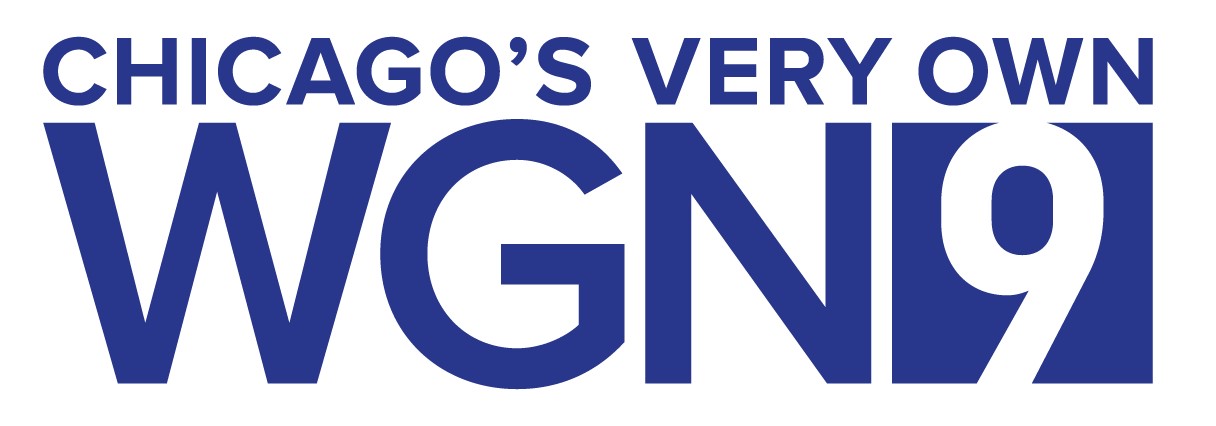
Susan K. Livio
Statehouse Reporter
NJ Advance Media

Jan Moller
Director
Louisiana Budget Project
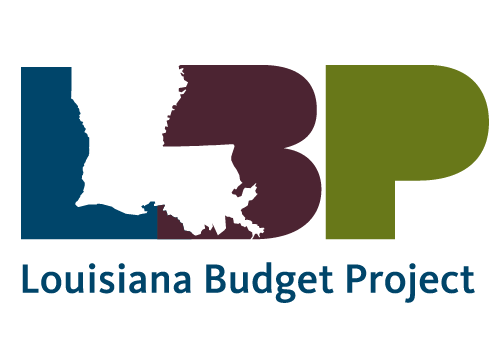
Hotel & Travel
Conference Location and Accommodations

Hyatt Regency Capitol Hill
400 New Jersey Avenue NW
Washington, DC 20001
Room Rate: $258/night
Hotel Reservations
Room reservations must be made directly with the hotel. You can reserve by phone at 1-800-233-1234 (reference group code: G-CW22) or online at Hyatt Reservations. Room availability and special rates are guaranteed only until April 5, 2022, or until the space is filled. Please be sure to make your reservation under our conference group block to ensure waiver of the destination fee charged at this hotel.
We secured an overflow group room block at Yotel, which is directly across the street from the Hyatt. The conference room rate is $249. For reservations, book online at Yotel Reservations with group code: 2204CWLADC
Other nearby hotels include:
Hilton Washington, DC Capitol Hill
Travel
The closest airport to the conference is Reagan Washington National Airport (DCA). A map of the area, driving directions, and ground transportation options are available at Hyatt Regency Capitol Hill.
Visiting Washington, DC
Washington, DC is filled with exciting and memorable places to visit. Only a handful of cities rival Washington, DC’s history and influence. Make plans to enjoy the nation’s capital by taking in the sights of your favorite American landmarks. Check out the Official Tourism Site of Washington, DC to plan your visit.
Sponsorship
Make a lasting impression on child and family experts and advocates. Become a Conference Sponsor or sponsor a special event, food function, or conference item. There is an opportunity for every organization and budget!
CONFERENCE SPONSORSHIP OPTIONS
ALL CONFERENCE SPONSORS RECEIVE:
- Company logo and website link on conference webpage
- Recognition and website link in conference e-communications
- Company logo on sponsor page in conference programs
- Name billing and logo on conference signage
- Insert for conference tote bags
Additional Benefits for Sponsorship Levels
CONFERENCE SPONSOR – $5,000
- Exhibit booth discount (50%)
- Quarter-page ad space in the conference final program
BRONZE SPONSOR – $10,000
- Exhibit booth discount (50%)
- Quarter-page ad space in the conference final program
- One-time use of the pre- and post-conference attendee mailing lists
SILVER SPONSOR – $15,000
- Exhibit booth
- Half-page ad space in the conference final program
- One-time use of the pre- and post-conference attendee mailing lists
GOLD SPONSOR – $25,000
- Upgraded exhibit booth (Premium)
- Full-page ad space in the conference final program
- One-time use of the pre- and post-conference attendee mailing lists
- Acknowledgement from the podium during a General Session
PLATINUM SPONSOR – $50,000
- Upgraded exhibit booth (Premium)
- Full-page ad space in the conference final program
- One-time use of the pre- and post-conference attendee mailing lists
- Acknowledgement from the podium during a General Session
- Special recognition in three conference e-blasts
- Webinar opportunity
COFFEE/SNACK BREAK SPONSOR – $10,000
- Exhibit booth discount (50%)
- Quarter-page ad space in the conference final program
- Name billing and logo on meal function signage
LUNCH SPONSOR – $15,000
- Exhibit booth
- Half-page ad space in the conference final program
- One-time use of the pre- and post-conference attendee mailing lists
- Name billing and logo on meal function signage
RECEPTION SPONSOR – $25,000
- Upgraded exhibit booth (Premium)
- Full-page ad space in the conference final program
- One-time use of the pre- and post-conference attendee mailing lists
- Acknowledgement from the podium during a General Session
- Name billing and logo on meal function signage
WI-FI SPONSOR – $7,500
- Company logo on Wi-Fi cards distributed to attendees with password
TECHNOLOGY SPONSOR – $20,000
- Upgraded exhibit booth (Premium)
- Half-page ad space in the conference final program
- One-time use of the pre- and post-conference attendee mailing lists
- Acknowledgement from the podium during a General Session
- Name billing and logo on A/V signage in General Session
We also encourage CWLA members, supporters, and vendors to consider being a Friend of CWLA for $1,000 or more to help us with general underwriting expenses needed to host the conference. Friends of CWLA are acknowledged with our conference sponsors.
Contact us at CWLA2022@cwla.org for more information or to discuss which sponsor opportunities work best for your organization!
Exhibiting & Advertising
Exhibiting
Meet face-to-face with CEOs, administrators, workers, researchers, advocates, and caregivers who are eager to explore new thinking and new products. As a bonus, CWLA exhibitors also receive the pre- and post-conference attendee mailing lists for marketing.
Exhibiting is an easy and economical way to share your company brand and products. The exhibit hall is the hub of the conference, featuring meal functions, receptions and more. Special activities, raffles, and prize giveaways also drive excitement and traffic to and through the exhibit hall!
Past exhibitors who have experienced success at our conference include software companies, publishers, insurance brokers, banks, trainers, accreditors, member and non-member agencies, and other organizations with a message for child and family professionals and leaders. Exhibiting at CWLA is easy, effective, and rewarding.
Interested in sponsoring the overall conference, a coffee break, tote bags, flash drives, or lanyards? Check out our Sponsorship Opportunities. We have options for every organization and budget!
Exhibit Fees (per 8′ x 10′ space):
- $1,550 for Premium Exhibitor (high-traffic space)
- $1,295 for General Exhibitor
- $1,095 for CWLA Member Organizations
Includes:
-
- 8′ x 10′ space with standard booth drapery
- 6′ x 2′ draped table
- 2 side chairs
- A complimentary registration for one exhibit staffer with access to all conference sessions, workshops, and meal functions
Additional exhibit staffers must register at a special rate of $425 - A 7″ x 44″ booth identification sign
- Registrant mailing list for pre-conference marketing (one-time use)
- Post-conference attendee list for follow-up outreach (one-time use)
- Dedicated exhibit hall times and functions
- A 30% discount on conference program advertising
- Optional add-ons: tote bag insert and program ads (see below)
Raffles and Prize Giveaways
Special activities, raffles, and prize giveaways featured in the exhibit hall will increase exhibitor exposure and attendee engagement. Raffled items will include gift cards. Exhibitors can “sponsor” the cards by selecting to contribute as an add-on option when registering. Exhibitors can also donate prizes to be raffled. Help us drive excitement and traffic to and through the exhibit hall!
Tote Bag Inserts – An Exhibitor/Sponsor Exclusive!
- Cost: $400
- Limit: One item per bag, per exhibitor (see Specifications)
Interested in promoting your products and services in the conference program? Explore our Advertising Opportunities (on 2nd tab of this section) to maximize your impressions and exposure!
Exhibit Hall Dates & Times (subject to change without notice)
- Set up: Wednesday, April 27 2022, 5:00 pm
- Dismantle: Thursday, April 28, 2022, 6:30 pm
- Exhibiting Dates & Times: Wednesday, April 27, 2022, 5:30 pm – Thursday, April 28, 2022, 6:00 pm
Registration and Payment:
- To Exhibit, REGISTER ONLINE. Registering means you agree with the TERMS AND CONDITIONS.
- Payment in full is due with registration. Pay by credit card or select “Bill Me” option to receive an invoice.
- Space will be assigned on a first-come, first-served basis.
- Exhibit Hall Floor Plan to be posted shortly.
Questions? E-mail CWLA2022@cwla.org
Can’t be with us in person? Check out our Take-One Exhibiting (on 3rd tab of this section) to share your message with conference attendees.
Advertising
Maximize your exposure! Advertise in the printed Conference Program to ensure increased visibility, brand awareness, and engagement with our attendees.
CONFERENCE PROGRAM
Benefits
- Full-color advertising!
- Exhibitors receive an over 30% discount on conference program advertising (as detailed below)
Deadlines
- Reserve program ad space by March 14, 2022
- Submit art to CWLA2022@cwla.org by March 21, 2022
Printed Ad Rates and Options:
| Ad Type | Size (Inches) | Exhibitor Cost | Non-Exhibitor Cost |
| Sixth Page | 2.5 x 4.75 | $210 | $350 |
| Quarter-Page Vertical | 3.37 x 4.75 | $420 | $675 |
| Half-Page Vertical | 3.75 x 9.25 | $840 | $1,300 |
| Half-Page Horizontal | 7.50 x 4.75 | $840 | $1,300 |
| Full Page (no bleed) | 7.50 x 10.00 | $1,680 | $2,500 |
| Full Page (bleed) | 8.75 x 11.25 | $1,680 | $2,500 |
| Back Cover (no bleed) | 7.50 x 7.00 to 8.00 | $2,100 | $3,450 |
| Back Cover (bleed) | 8.75 x 7.25 to 8.25 | $2,100 | $3,450 |
Registration and Payment:
- To advertise, REGISTER ONLINE. Registering means you agree with the TERMS AND CONDITIONS.
- Payment in full is due with registration. Pay by credit card or select “Bill Me” option to receive an invoice.
Questions? E-mail CWLA2022@cwla.org.
Take-One Exhibiting
Can’t be with us in person, but have a message for conference attendees? Send fliers, brochures, and other material for our Take-One tables in or near the Exhibit Hall and Conference Registration area.
Cost: $300.00 per item
General Shipping Instructions:
- Clearly label all boxes.
- Ship by traceable means.
- Leftover items will not be returned.
- Materials should not arrive earlier than Monday, April 25, 2022
Registration and Payment:
- For Take-One Exhibiting, REGISTER ONLINE. Registering means you agree to the TERMS AND CONDITIONS.
- Payment in full is due with registration. Pay by credit card or select “Bill Me” option to receive an invoice.
Questions? E-mail CWLA2022@cwla.org.

